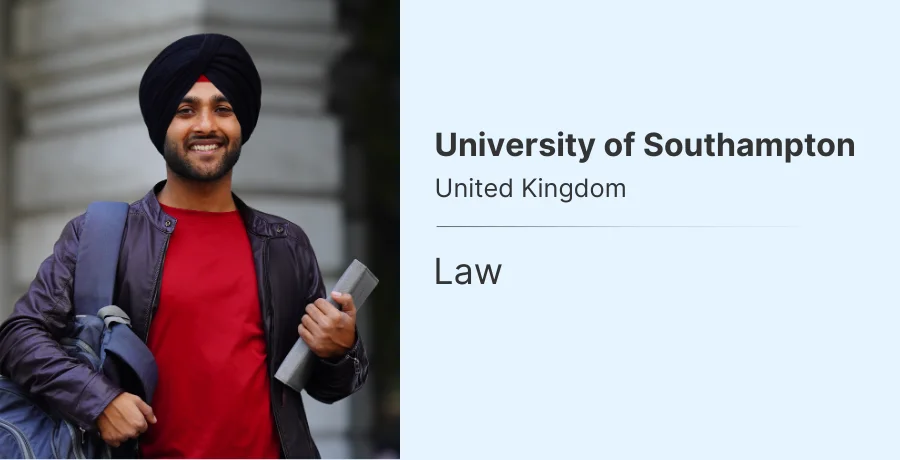Finance at University of Oxford UK
Table of Contents
- Finance at University of Oxford UK – Highlights
- Why Study Finance at University of Oxford UK?
- University of Oxford Finance Rankings
- University of Oxford Finance Acceptance Rate
- Popular Finance Courses at University of Oxford UK
- Admission Requirements to Finance at University of Oxford UK
- Cost of Finance at University of Oxford UK for Indian Students
- Scholarships at University of Oxford UK
- Job Prospects for Finance at UK
- FAQs – Finance at University of Oxford UK
Finance at University of Oxford UK – Highlights
The Finance course at the University of Oxford offers an unparalleled education in one of the world's most historic and prestigious institutions. Nestled in the picturesque city of Oxford, students benefit from a blend of traditional academic rigor and cutting-edge financial theory.
Oxford's rich history and vibrant student life make it an ideal place to study finance. With access to world-class resources, libraries, and faculty, students are well-prepared to enter the global financial market upon graduation.
Why Study Finance at University of Oxford UK?
Studying Finance at the University of Oxford provides students with a comprehensive understanding of financial principles and practices. The course is designed to equip students with the skills needed to excel in various financial sectors, from banking to investment management.
- World-renowned faculty
- Access to extensive resources and libraries
- Strong alumni network
- Opportunities for international exposure
University of Oxford Finance Rankings
| Ranking | Position |
|---|---|
| US News and World Report Ranking | 1st in Europe, 5th globally |
| QS Ranking | 2nd in Finance |
| THE Ranking | 3rd in Finance |
| ARWU Ranking | 4th in Finance |
University of Oxford Finance Acceptance Rate
- The acceptance rate for the Finance course at the University of Oxford is highly competitive, typically less than 10%.
- Applicants are evaluated on academic excellence, entrance exam scores, and personal statements.
Popular Finance Courses at University of Oxford UK
- Bachelor's Programs:
- BSc in Financial Economics: This program provides a strong foundation in economic theory and financial principles, preparing students for careers in finance and economics.
- BSc in Accounting and Finance: Focuses on financial reporting, analysis, and management, equipping students with essential skills for the finance industry.
- Master's Programs:
- MSc in Financial Economics: An advanced program that delves into economic theory, quantitative finance, and financial markets.
- MBA with Finance Concentration: This program combines core business principles with specialized finance courses, ideal for future financial leaders.
Admission Requirements to Finance at University of Oxford UK
Admission to the Finance course at the University of Oxford is highly competitive and requires a strong academic background.
Entry Requirements:
-
- University of Oxford Finance entrance exam: Candidates must take the TSA (Thinking Skills Assessment) or GMAT/GRE for postgraduate courses.
- University of Oxford Finance entry requirements: High school diploma or equivalent for undergraduates; bachelor's degree for postgraduates.
Eligibility Criteria:
For undergraduate programs, candidates must have excellent grades in relevant subjects, including mathematics and economics. Extracurricular achievements and leadership qualities are also considered.
For postgraduate programs, candidates should have a strong academic record, relevant work experience, and a clear motivation for studying finance. A well-crafted personal statement is crucial.
Documents Required:
- Academic transcripts: Proof of previous academic performance.
- Letters of recommendation: From teachers or employers.
- Personal statement: Detailing motivation and career goals.
- Proof of English proficiency: IELTS or TOEFL scores.
Proficiency Test:
Applicants must demonstrate proficiency in English through standardized tests like IELTS or TOEFL. Minimum scores are typically 7.5 for IELTS and 110 for TOEFL iBT.
Visa Process:
- Apply for a Tier 4 (General) student visa.
- Provide a Confirmation of Acceptance for Studies (CAS) from the University of Oxford.
- Demonstrate sufficient funds for tuition and living expenses.
- Attend a visa interview if required.
Cost of Finance at University of Oxford UK for Indian Students
Tuition Fees:
The annual tuition fee for Finance courses at the University of Oxford ranges from £25,000 to £40,000, depending on the program and level of study.
Cost of Living:
The estimated cost of living for students in Oxford is around £12,000 to £15,000 per year, covering accommodation, food, transportation, and other expenses.
| Expense | Cost (INR) |
|---|---|
| Tuition Fees | ₹25,00,000 - ₹40,00,000 |
| Cost of Living | ₹12,00,000 - ₹15,00,000 |
Scholarships at University of Oxford UK
Scholarships are available to help students finance their education. These scholarships are awarded based on academic merit, financial need, and other criteria.
- Rhodes Scholarship: Covers tuition fees and provides a stipend for living expenses. Awarded to outstanding students from around the world.
- Clarendon Fund Scholarships: Full coverage of tuition fees and a generous grant for living expenses. Open to all graduate applicants.
- Oxford-Weidenfeld and Hoffmann Scholarships: Supports students from emerging economies with full tuition and living costs.
Job Prospects for Finance at UK
Graduates of the Finance course at the University of Oxford have excellent job prospects, with many securing positions in top financial institutions and companies worldwide.
- Investment Banker: ₹20,00,000 - ₹50,00,000 per annum
- Financial Analyst: ₹10,00,000 - ₹30,00,000 per annum
- Risk Manager: ₹15,00,000 - ₹35,00,000 per annum
- Portfolio Manager: ₹25,00,000 - ₹45,00,000 per annum
| Job Title | Average Salary (INR) |
|---|---|
| Investment Banker | ₹20,00,000 - ₹50,00,000 |
| Financial Analyst | ₹10,00,000 - ₹30,00,000 |
| Risk Manager | ₹15,00,000 - ₹35,00,000 |
| Portfolio Manager | ₹25,00,000 - ₹45,00,000 |
FAQs – Finance at University of Oxford UK
1.Can I work while studying Finance at the University of Oxford?
Yes, students can work part-time during their studies. The university allows up to 20 hours of work per week during term time and full-time during vacations.
2.What are the advantages of studying Finance at the University of Oxford?
Studying at Oxford provides unparalleled academic resources, access to a global network of alumni, and opportunities for research and professional development.
3.What is the average salary for graduates of Finance at the University of Oxford?
Graduates can expect an average starting salary ranging from ₹15,00,000 to ₹30,00,000 per annum, depending on the role and industry.
4.What is the duration of the Finance programs at the University of Oxford?
Undergraduate programs typically last 3 to 4 years, while postgraduate programs can range from 1 to 2 years.
5.What are the exams required for admission to Finance courses at the University of Oxford?
Applicants may need to take the TSA, GMAT, or GRE, depending on the specific course requirements and level of study.
6.What are the popular Finance courses at the University of Oxford UK?
Popular courses include the BSc in Financial Economics, BSc in Accounting and Finance, MSc in Financial Economics, and MBA with a Finance Concentration.












